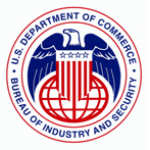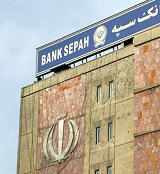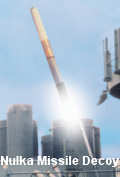 The Ninth Circuit Federal Court of Appeals in California yesterday overturned the conviction of Qing Chang Jiang, who had been convicted of making false statements to a BIS investigator in connection with an export investigation. In unusually harsh language, the Court criticized the investigator and the prosecution for seeking to prosecute Mr. Jiang based on ambiguous answers to poorly-phrased questions. “The consequences of imprecision,” said the appeals court, “in the language used to question a witness must be laid at the table of the questioner, not the questioned.”
The Ninth Circuit Federal Court of Appeals in California yesterday overturned the conviction of Qing Chang Jiang, who had been convicted of making false statements to a BIS investigator in connection with an export investigation. In unusually harsh language, the Court criticized the investigator and the prosecution for seeking to prosecute Mr. Jiang based on ambiguous answers to poorly-phrased questions. “The consequences of imprecision,” said the appeals court, “in the language used to question a witness must be laid at the table of the questioner, not the questioned.”
Mr. Jiang entered into a contract with a Chinese company to ship them nine microwave amplifiers and applied for a BIS export license for them. Because the Chinese company shared the same address with a Chinese military organization, BIS opened an investigation to obtain further information concerning the proposed export. Before the license was granted, the manufacturer of the microwave amplifiers advised Jiang that no license was necessary for these exports, and Jiang exported four of the nine amplifiers to the Chinese end-user.
Thereafter, the Chinese company determined that the amplifiers did not meet specifications. It retained three of the amplifiers for another use, canceled its order for the nine amplifiers, and returned the fourth to Jiang. Jiang then sent back to the manufacturer the returned amplifier along with the other five amplifiers which Jiang had received in the interim but not yet exported.
Ultimately Jiang’s export license application was denied by BIS and a criminal action was instituted against Mr. Jiang for illegal export of the amplifiers. Almost two years later, a count was added to the indictment by alleging that Mr. Jiang had violated 18 U.S.C. § 1001(a)(2) when he told the BIS investigator that “that the product was returned to Narda [the manufacturer].†Jiang was acquitted by the trial court of the export violation but convicted of the false statement charge.
In overturning the trial court, the Ninth Circuit noted that Jiang’s response that “the product” was returned to the manufacturer could well have been a reference to his return of two-thirds of the amplifiers to the manufacturer. Further support was found for this interpretation from Jiang’s statement, in a second interview, that three amplifiers were shipped to China when he was asked whether any amplifiers had been shipped to China. The court also noted that Jiang’s command of the English language was limited.
As a result of these factors, the Court concluded as follows:
It does not escape our attention that the ambiguity could have been resolved easily had Spelce [the BIS investigator] simply asked whether any of the amplifiers had been shipped to China. In this vein, requiring agents to use a minimum “level of clarity and specificity is the appropriate remedy for imprecise questioning, not a [criminal] prosecution.
Although Jiang was ultimately acquitted, it was, no doubt, only after great personal expense, both financial and emotional. The lesson for exporters here is to remember that statements to BIS investigators, even if not “under oath,” can lead to criminal prosecution and possibly conviction. Worse, a prosecution can occur even where there is a significant dispute between BIS and the exporter over exactly what was said in the interview. Accordingly, when BIS knocks at your door, for any reason, you will certainly want your lawyer to participate in all meetings with BIS investigators.

 Posted by
Posted by  Category:
Category: 

 On Monday we
On Monday we  The Treasury Department
The Treasury Department  Last month BIS added a new entry to the
Last month BIS added a new entry to the  Lockheed Martin
Lockheed Martin 

